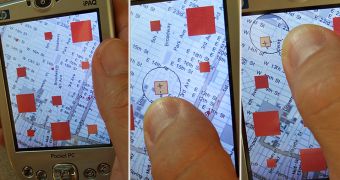Human-computer interaction is a medium that evolves continuously and Microsoft aims to make sure that it is in the avant-garde. This is one of the reasons why the Redmond Company is one of the stronger presences at the international Computer/Human Interaction (CHI) 2007 Conference, at the San Jose McEnery Convention Center, which went live yesterday, April 30, 2007. Microsoft research is participating with no less than 19 contributions to the conference, but the company chose to highlight only three.
The "Shift: A Technique for Operating Pen-Based Interfaces Using Touch," "The Full-Context Videos for First-Time, Non-Literate PC Users," and "IGroup: Presenting Web Image Search Results in Semantic Clusters" are just three examples of Microsoft's involvement in CHI 2007. According to the Redmond Company, each of the technologies that are described in these three research papers is meant to integrate seamlessly into every-day life.
"We're extremely proud of our participation at CHI this year," says Rick Rashid, senior vice president of Microsoft Research. "The impressive number of Microsoft papers accepted for publication, the accolades that our researchers have earned for their work in the HCI space, and the time we commit to chair technical sessions and serve on panel discussions all reflect our desire to improve the computing experience for consumers around the globe."
"One of the most important reasons people attend the annual CHI conference is to learn something new," notes Mary Beth Rosson, CHI 2007 Conference co-chair. "CHI 2007 will exceed attendees' expectations for important perspectives to consider when designing future technologies. Microsoft, along with many other industry leaders and academia, has contributed to the growth of the annual CHI conference for many years."
It is a new technology that will either enable PDA users to use their fingers instead of a stylus, or increase the relevance of image search via semantic clusters or deliver text-free user interfaces for computer illiterate people; anyhow, Microsoft Research work is involved in a whole range of projects designed to evolve human-computer interaction.

 14 DAY TRIAL //
14 DAY TRIAL //